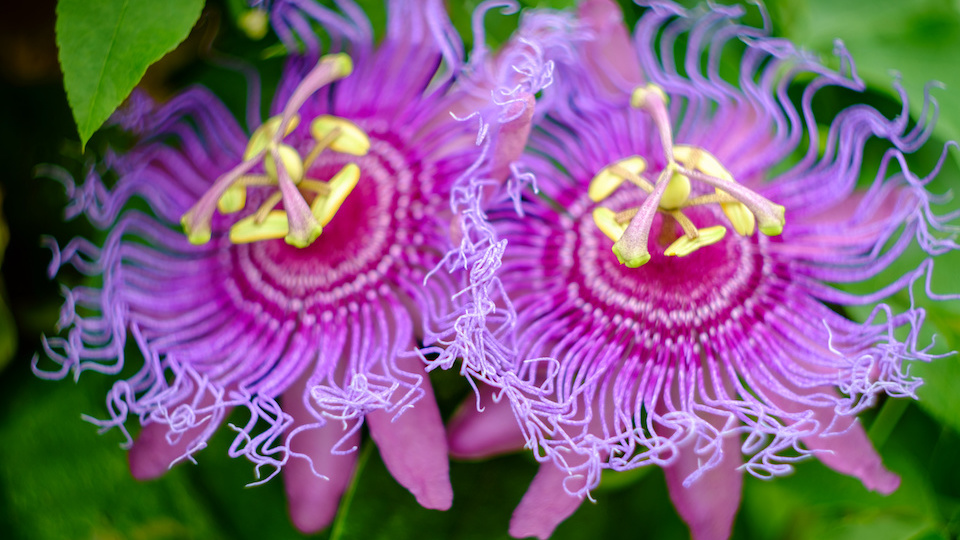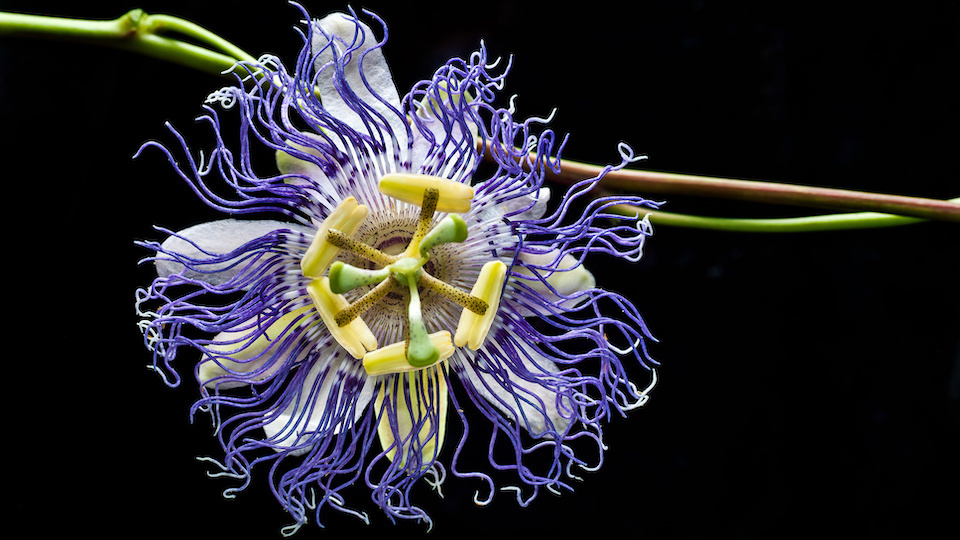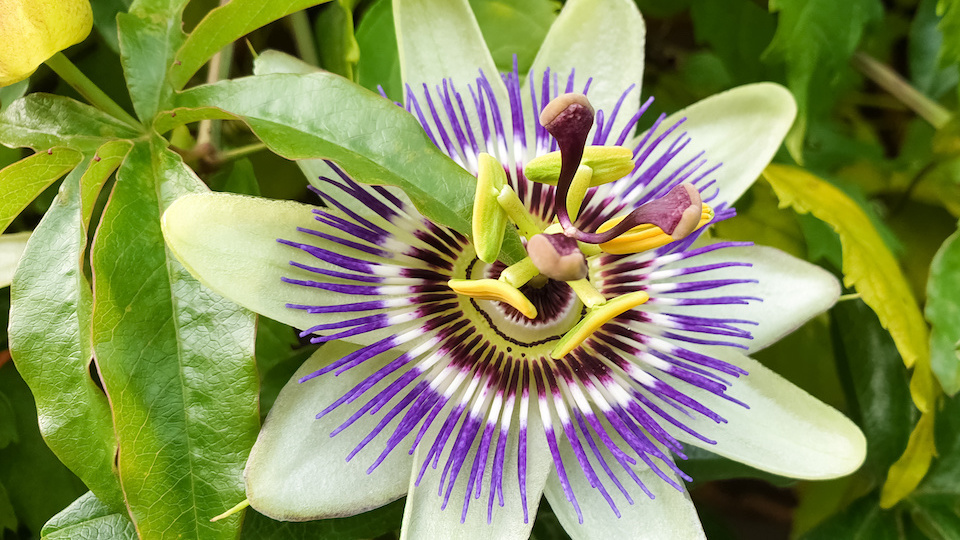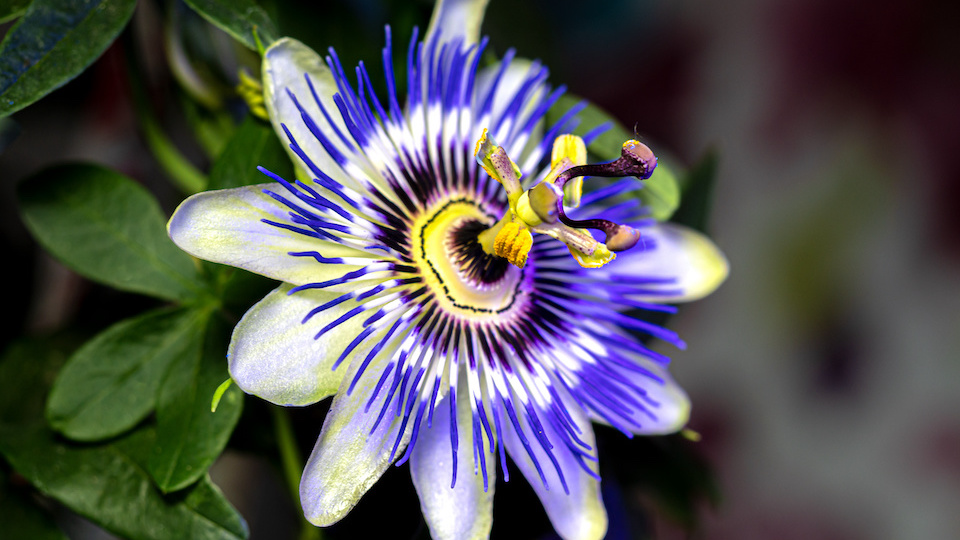I discovered a stunningly beautiful plant about eight years ago that has far surpassed my expectations in so many ways. Passionflower looks like something that belongs only in the most tropical locations in the world. However, this eye-catching plant will grow in most regions of the world, even in cooler areas like zone 5, where the thought of a tropical-looking plant may seem out of the question.
Passiflora is native to North America and South America and contains more than 500 species, including shrubs, annuals, perennials, and trees. Some types also produce edible fruits. The great news is that passionflower plants are super easy to grow. So easy that they are sometimes thought to be invasive if left without maintenance. These pretty plants like full sun to partial shade and average, well-drained soil.
My favorite passionflower plants to grow are hardy in zones 7-10 and are beautiful vines that require sturdy support systems to do their best. During the winter months, heavy mulching is necessary to preserve the plant for the following season. These prolific vines can grow up to 20 feet in a single season. If you live in a place where winter is super harsh, you can bring your passionflower inside. As long as you have a room with a bright light, it will do well. Applying all-purpose organic feed twice during the growing season will keep your passion vine healthy and looking beautiful.
As an added bonus, passionflowers are easy to start from seed!
Not just a beautiful plant

Passionflowers are so much more than just beautiful plants; they are also therapeutic. Native Americans have used passionflower to remedy a host of ailments, including insomnia, stress and anxiety, wounds, earaches, and even liver problems. Use of the plant medicinally in the Americas and Europe has included anxiety, insomnia, seizures, and hysteria. Today passionflower is used mainly as a natural remedy for anxiety and insomnia. According to the University of Maryland Medical Center, this garden beauty works like other natural remedies by elevating a chemical in the brain known as GABA that helps with relaxation and encourages sleep.
As good as pharmaceutical drugs for anxiety

A research study published in the Journal of Clinical Pharmacy and Therapeutics compared passionflower to the popular anxiety drug oxazepam used to treat generalized anxiety disorder. Although Oxazepam worked faster than passionflower, it also caused more issues relative to job performance impairment. Passionflower, on the other hand, showed minimal impact on job performance. Study leaders concluded that passionflower extract was equally as effective as oxazepam in reducing anxiety.
Promoting sleep with passionflower

The first time I ever tried a cup of passionflower tea to help me sleep, I was amazed at how quickly and effectively it worked. This amazing herbal remedy acted as a mild sedative and put me right to sleep, unlike anything I had tried before. In a study published in Phytohterapy Research, participants drank herbal tea infused with purple passionflower daily. After the seven-day study period, participants reported improved sleep. A big reason why some people have sleep issues is anxiety, which lines up with the study mentioned above and another trial study published in the journal Anesthesia and Analgesia. This second study found that patients who consumed passionflower before surgery had less reported anxiety than those who consumed a placebo.
In addition to these research findings, there is plenty of reported anecdotal evidence pointing towards passionflower’s effectiveness at reducing anxiety and promoting relaxation and sleep. I can attest to that!
Recommended dose of passionflower
Flowers, leaves, and stems of the passionflower are used for medicinal purposes. You can find them in infusions, teas, liquid extracts, and tinctures. According to the University of Maryland, recommended doses are as follows:
- For tea: Steep about 1 teaspoon of dried herb in one cup of boiling water for 10 minutes. For general anxiety, drink three to four cups per day. If you have insomnia, drink one cup before going to bed.
- For fluid extract: Use 10 to 20 drops (1:1 in 25 percent alcohol) 3 times a day.
- For tincture: Use 10 to 45 drops (1:5 in 45 percent alcohol) 3 times a day.
Cautions for passionflower
Passionflower is generally considered safe. However, according to the NCCIH, it may cause some side effects, including sleepiness, dizziness, and confusion. Therefore, you should not take passionflower with sedative medications. It’s also not safe for pregnant women or breastfeeding women to take, as it may induce contractions if you’re pregnant.
It’s important to note that although herbal remedies are safer than many medicines that originate from a laboratory, you can still experience side effects if you don’t use them correctly. Combining herbal remedies with prescription medicines, using them to treat a serious illness without the help of a professional could pose health risks.
Happy Growing,
Susan, CBHC, Master Gardener




